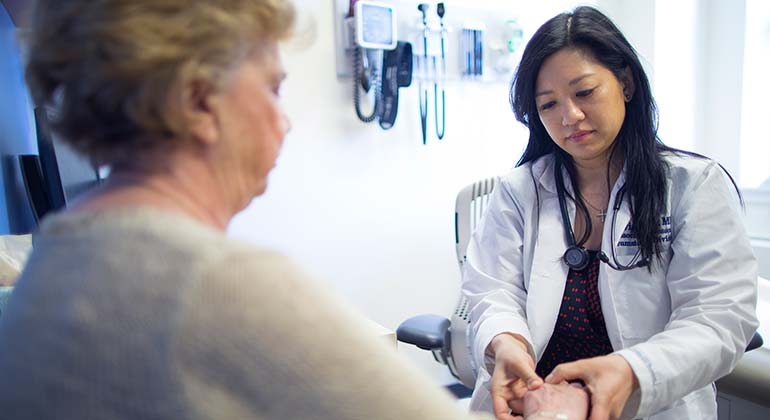Myositis

Myositis is an inflammatory condition that affects the muscles. There are several types of myositis, most of which are highly treatable. Symptoms of myositis typically involve weakness such a having trouble standing up from a chair, climbing stairs, lifting the arms. But usually there is no muscle pain. The weakness is typically symmetrical; it affects both legs or both arms, not just one.
Myositis can be caused by a viral infection, by alcohol or by certain medications such as statins. It can also be due to an autoimmune disease. The major types of autoimmune myositis are:
- Dermatomyositis usually associated with a bluish-purple rash on your eyelids or a red rash over the neck, shoulders, upper chest, or knuckles. It also causes muscle weakness.
- Polymyositis causes weakness in the muscles without rash. It can also affect the lungs and make it difficult to breathe.
- Inclusion body myositis usually affects people over age 50. It may go undiagnosed for a long time before the symptoms of muscle weakness manifests.
- Juvenile myositis affects children between ages 5 and 15. It often causes a rash as well as fatigue and muscle weakness.
Both dermatomyositis and polymyositis can sometimes be associated with cancer, and therefore an age-appropriate cancer screening is indicated.
The diagnosis of myositis involves a complete physical exam, blood test, electromyography (a neurological test that assess the electrical activity in your muscles), and a muscle biopsy, which involves removing a small sample of muscle tissue for testing.
Treatments We Offer
Early diagnosis and early aggressive treatment are important to preserve muscle mass and function.
Why Mount Sinai
Mount Sinai rheumatologists have extensive experience in diagnosing and treating autoimmune myositis.